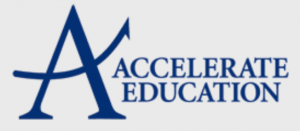Olive Grove Charter Schools, Inc.’s policy is to maintain a positive and productive working and educational environment. OGCS, Inc. does not discriminate on the basis of disability, gender, gender identity, gender expression, nationality, national origin, ethnic group identification, age, mental disability, physical disability, medical condition, genetic information, marital status, race, color, ancestry, or ethnicity, religion, sex, sexual orientation, or any other characteristic that is contained in the definition of hate crimes set forth in California Penal Code section 422.55 in its programs and activities and provides equal access to the Boy Scouts and other designated youth groups. (OCR Notice of Non-Discrimination for Title VI, IX, Section 504, Age Disc. Act and Boy Scouts Act.) OGCS, Inc. is primarily responsible to ensure that it is compliant with all applicable federal and state laws and regulations. There are some circumstances, however, when employees or students may take issue with other employees or students or someone may believe that a violation of federal or state law is occurring in certain educational programs. The School encourages complainants to first address the issue with the other person directly using conflict resolution skills when possible.
Types of Complaints to be Filed Using the UCP: If, however, the complainant does not feel comfortable with this approach and the complaint relates to any of the topics below, the complainant must use the complaint procedure identified below. If the complaint relates to a different type of complaint, contact Meg Rydman, Executive Director, mrydman@olivegrovecharter.org, 805-623-1111, ext. 1106, to obtain information about making a different type of complaint. OGCS, Inc.will investigate relevant complaints, as identified below, and seek to resolve them in compliance with this policy:
- Discrimination, harassment, intimidation, or bullying against any protected group as identified under Education Code sections 200 and 220 and section 11135 of the Government Code, including any actual or perceived characteristic as set forth in section 422.55 of the Penal Code, or on the basis of a person’s association with a person or group with one or more of these actual or perceived characteristics, in any program or activity conducted by the school;
- Improper student fees;
- Failure to accommodate lactating students
- Noncompliance with the rights of pregnant and parenting students;
- Failure to provide Lesbian, Gay, Bisexual, Transgender and Questioning (LGBTQ) resources;
- Failure to comply with statutes relating to foster care pupil records transfers or foster care pupil education;
- Failure to comply with statutes relating to the education of homeless students, students in foster care, former juvenile court school students, students who are children of a military family, or migratory students;
- A complaint about the School’s safety plan;
- A complaint that the School has not complied with the requirements of Education Code sections 47606.5 (annual update to goals and annual actions) or 47607.3 (outcomes for pupil subgroups), as applicable
- Every Student Succeeds Act;
- A complaint that the governing body of the School has refused to approve the use or prohibit the use of any textbook, instructional material, supplemental instructional material, or other curriculum for classroom instruction or any book or other resource in a school library on the basis that it includes a study and contributions of any individual group consistent with the requirements of Education Code sections 51204 and 60040, unless the study of the role and contributions violates Section 51501 or 60044.
- Other violation of state or federal law under the following programs: Consolidated Categorical Aid Programs, including improving academic achievement, compensatory education, English learner programs, Career Technical and Technical Education and Career Technical and Technical Training Programs, Compensatory Education, Migrant Education, Child Care and Development Programs, Physical Education: Instructional Minutes; Pupil Instruction: Course Periods without Educational Content or Previously Completed Courses; Regional Occupational Centers and Programs; and School Plans for Student Achievement.
Types of Complaints Not Covered by the UCP
Many complaints do not fit within the above-listed complaints to be made through the UCP. Some of these include, but are not limited to:
- Classroom assignments
- Common core
- Grades and graduation requirements
- Hiring and evaluation of staff
- Homework policies and practices
- Provision of core curricula subjects
- Student advancement and retention
- Student discipline
- Student records
- Employment complaints
- Open meetings and board meetings
- Other general education requirements


